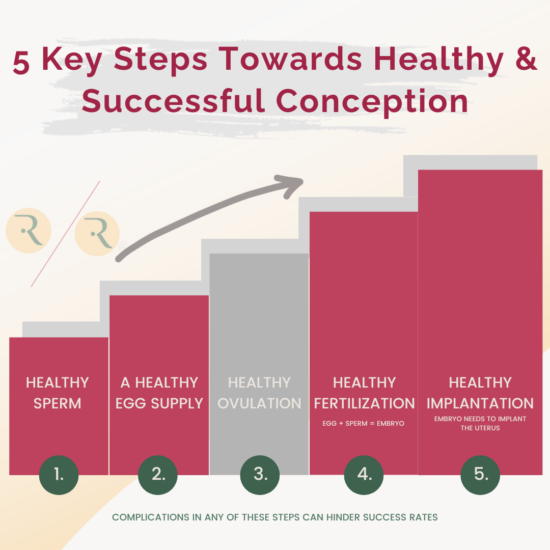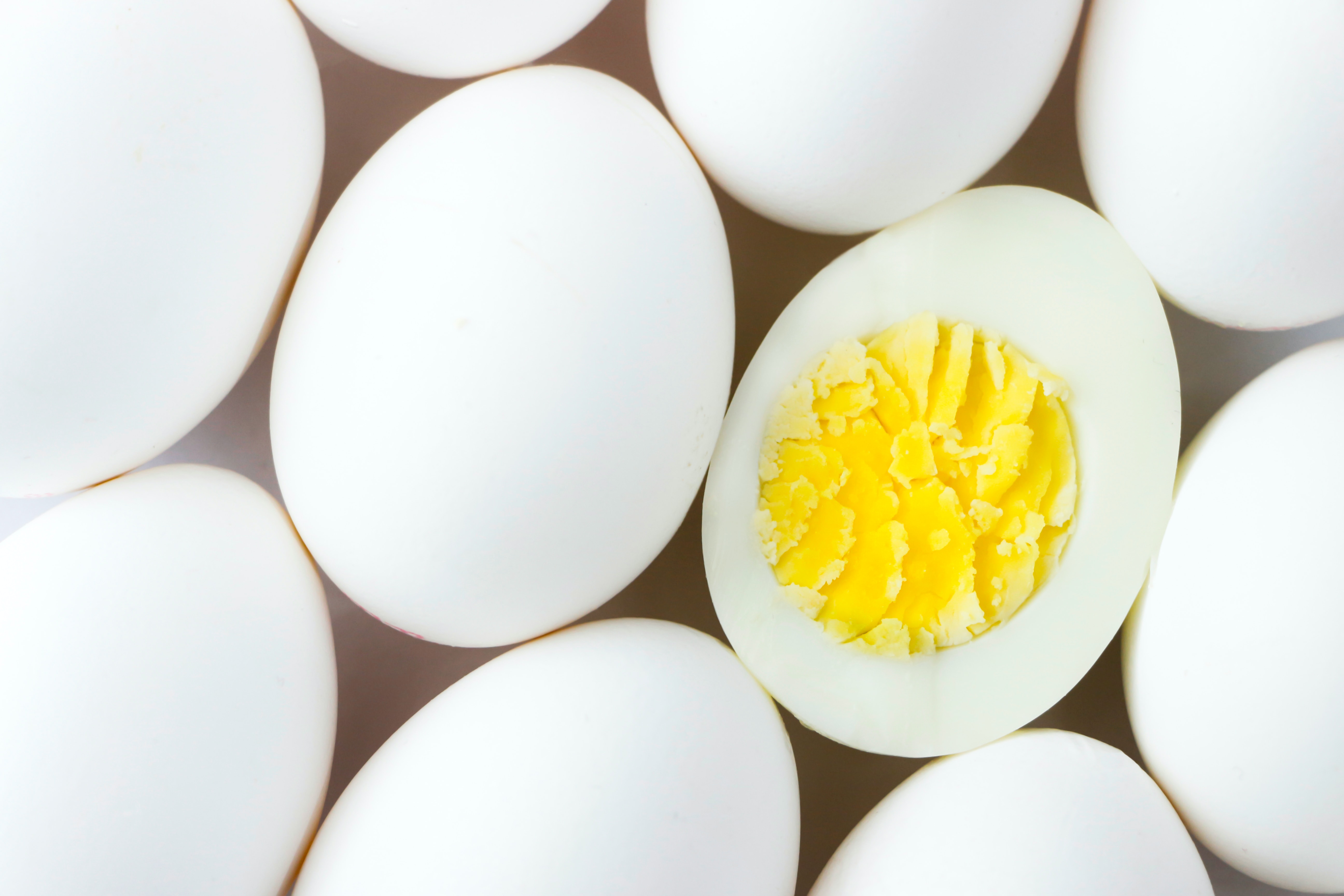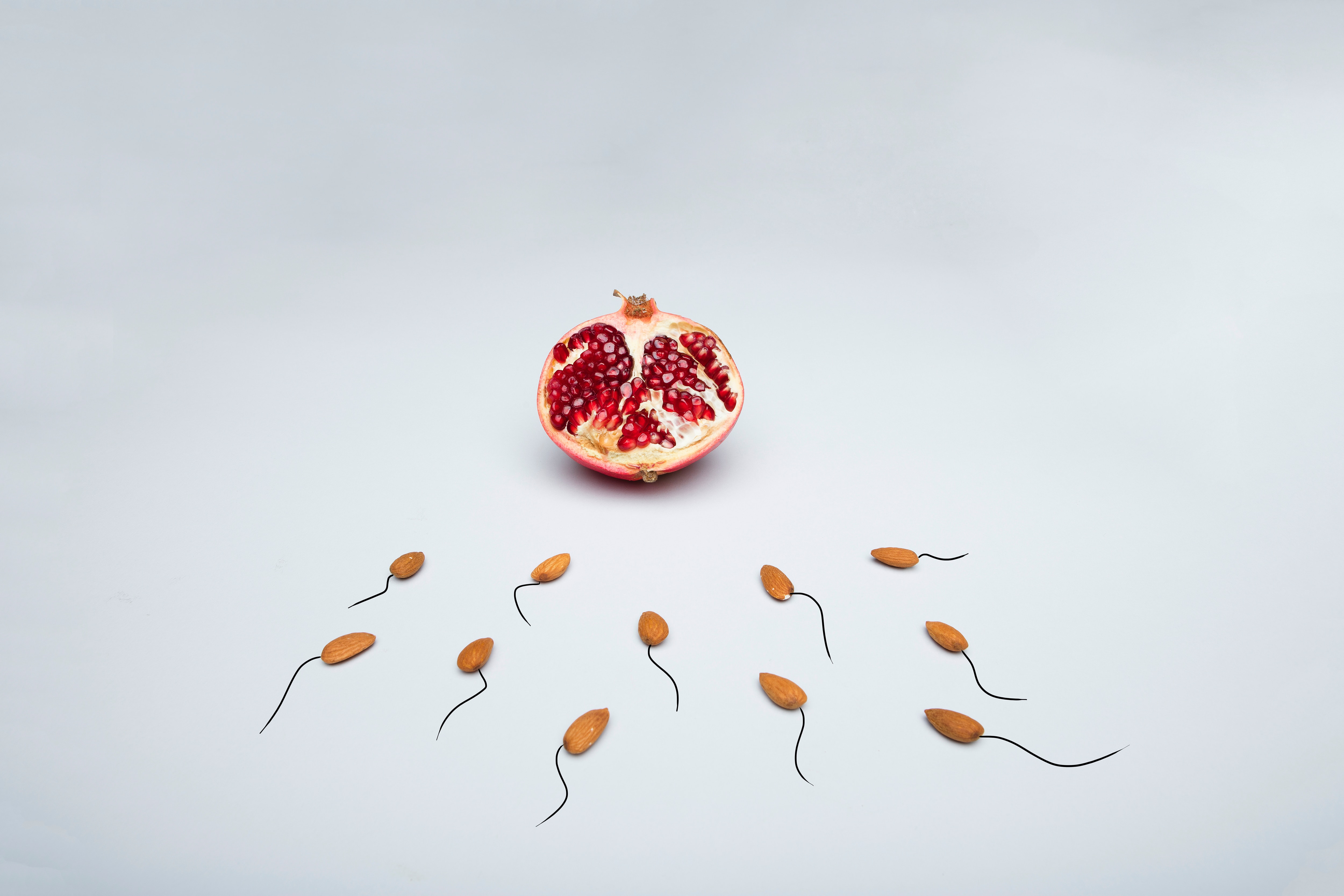5 Key Steps To Successful Conception
Many couples believe that having a healthy egg supply is the only factor that determines successful conception. However, this is a misconception. In fact, there are five crucial steps that contribute to a healthy and successful conception. These include the health of the sperm, health of the egg, healthy ovulation, healthy fertilization and a healthy implantation process. It is important to consider all of these factors in order to increase the chances of a successful pregnancy.

How Sperm Health Affects Successful Conception
Healthy sperm plays a crucial role in conception and the health of the baby. Various factors such as sperm count, motility, and shape are important indicators of sperm health. Research suggests that maintaining a healthy weight, eating a nutrient-rich diet low in fat and sugar, and reducing alcohol consumption can improve sperm quality and increase the chances of conception. High intakes of saturated fats including red and processed meat are associated with a reduction in sperm quality. A strong adherence to a healthy dietary pattern based mainly on plant foods and fish is positively correlated with indicators of sperm quality. The impact of nutrients and antioxidants on sperm quality, such as omega-3 fatty acids and antioxidant vitamins, can minimize oxidative stress and inflammation, thus positively affecting fertility. However, there are sperm complications that can not be improved by lifestyle and diet. It can be the result of congenital or acquired urogenital abnormalities, malignancy, infection, genetic factors, endocrine disorders, varicocele and immunological causes. Approximately 30% of all cases of male factor fertility have no identifiable cause.
How Healthy Egg Supply Affects Successful Conception
This is an obvious one but of course, we need at least one healthy egg to optimize our rate of conception. I like to think of egg supplies like gumball machines. Each month in a natural menstrual cycle, the body withdraws one gum ball (egg) from the machine (your ovaries). That egg is either healthy or unhealthy. As you age, you have fewer gum balls in the machine, and a higher percentage of the gum balls are unhealthy, lowering the chances that the one you get in a given month will be able to result in a healthy baby. Once an egg is damaged, it cannot be healed and is unable to be fertilized. That’s why it can take much longer for older women to get pregnant. The biggest contributors to egg health are age, oxidative stress, obesity, nutrition, smoking, alcohol intake, psychological stress and reproductive conditions.

How Ovulation Health Affects Successful Conception
Ovulatory dysfunction refers to a condition where there is interference with the maturation or release of the egg, leading to irregular, infrequent, or absent ovulation. Ovulatory dysfunction is one of the leading causes of infertility accounting for approximately 30% of cases. Causes of ovulatory dysfunction can include polycystic ovary syndrome (PCOS), hyperprolactinemia (excess prolactin), hypothalamic dysfunction, hypothyroidism, extreme weight loss, obesity, diabetes, early menopause, stress, and certain medications. Symptoms may include irregular or absent menstrual periods, and the condition can lead to infertility. Dietary modifications have been shown to improve ovulatory disorders affecting fertility. A combination of five or more lifestyle factors was associated with a 69% lower risk of ovulatory disorder infertility.

How Healthy Fertilization Affects Successful Conception
In order for the egg to become fertilized the sperm needs to make its way into the fallopian tube and burrow into the egg. A zygote is what we call a fertilized egg. The process of fertilizing an egg to form a zygote is a complex and intricate biological event. Fertilization is a multi-step process that typically occurs within 24 hours after the sperm meets the egg. The successful fertilization of an egg depends on various factors, including the health and motility of the sperm, the quality of the egg, and the conditions within the female reproductive tract. Complications during fertilization can arise due to chromosomal abnormalities, which can impact the development of the zygote and subsequent embryo.

How Healthy Implantation Affects Successful Conception
The implantation of the embryo during fertility treatment takes place between the 5th and 7th day after fertilization. Recurrent implantation failure (RIF) refers to cases in which women have had three failed IVF attempts with good-quality embryos. The failure of embryo implantation can be a consequence of the health of the uterus or the health of the embryo.
Common causes and risk factors for implantation failure include:
- Embryonic factors– embryos with abnormal chromosomes.
- Uterine Factors– uterine abnormalities (fibroids, thin endometrium, endometriosis), hormonal/metabolic disorders, infections or immunological factors.
- Systemic Factors– age, smoking, BMI, stress, diabetes and autoimmune disorders.
The treatment for implantation failure is dependent on the individual condition.
Bottom Line
There are many factors that contribute to a successful conception, and egg health is just one of them. If you’ve been trying to conceive for over a year and haven’t succeeded, please contact a health care professional to discuss other possible causes. Diet and lifestyle changes can significantly impact outcomes of various conditions.



